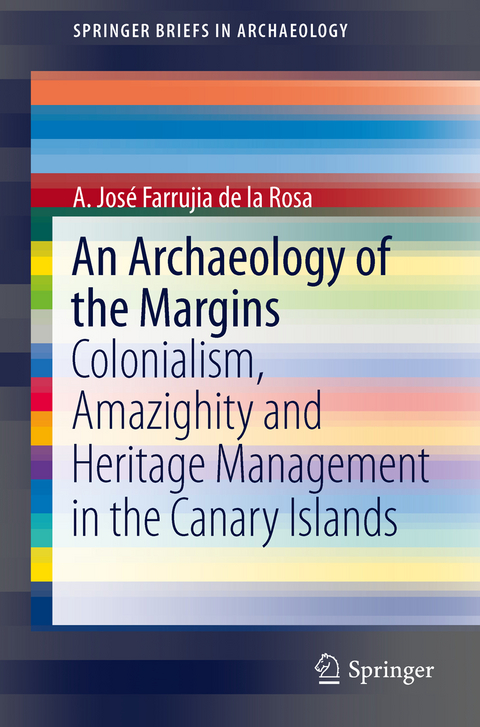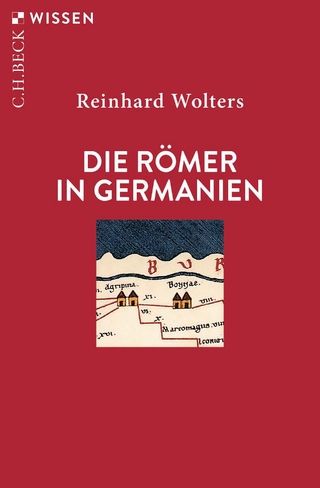
An Archaeology of the Margins
Springer-Verlag New York Inc.
978-1-4614-9395-2 (ISBN)
From a practical point of view, the book presents a proposal for enhancing the archaeological heritage of the Canary Islands through the creation of archaeological parks (providing some concrete examples in the case of the city of La Laguna) and the active involvement of the local community. Parallel to this, the book considers the Canarian Archipelago as part of a problematic that is not unique to this area but is an example of poor indigenous heritage management overall. It demonstrates how the course of history and the politics of the past still have an excessive influence on the way in which the present-day archaeological heritage is interpreted and managed.
Therefore, this book provides an almost unique opportunity for uncovering the history of archaeology within the margins of Europe (in fact, in an African region) and exploring colonial and foreign influences. In many ways it is a mirror of archaeological mainstreams and an exercise in (re)thinking the aim and status of present-day archaeology.
José Farrujia de la Rosa holds a PhD in Prehistory and a PhD Premio Extraordinario (Extraordinary award) in Humanities (2003), both awarded by the University of La Laguna. He was the winner of the Antonio Rumeu de Armas Historical Research Prize (2009) and is a Member of the Spanish Society for the History of Archaeology. He received a research grant from the Ministry of Education and Culture University Teacher program (2000-2003) and taught in the Department of Prehistory, Anthropology and Ancient History at the same university, as well working as a Senior Archaeological Conservation Technician at the Archaeological Museum of Tenerife and Historical Heritage Officer at the La Laguna City Council. He currently works in the field of heritage management. He has been involved in numerous archaeological surveys and excavations in the Canarian Archipelago and elsewhere in Europe. His research focuses on the archaeology of the Canary Islands, including studies on heritage management, the history of the archaeology of the islands, the early colonization of the islands, archaeological theory and methodology, rock art and identity issues. He is the author of many articles published both in Spanish journals (including Trabajos de Prehistoria, Complutum, Tabona, and Revista Atlántica y Mediterránea de Prehistoria y Arqueología Social) and foreign journals (including the Oxford Journal of Archaeology, African Archaeological Review, Sahara, and Nouvelles de l’Archeologie, amongst others). He is also the author of the following books: El poblamiento humano de Canarias en la obra de Manuel de Ossuna y Van den Heede (2002); Ab initio (1342-1969) (2004), Imperialist Archaeology in the Canary Islands. French and German studies on Prehistoric colonization (2005), which is the first academic book written in English on Canarian archaeology; Arqueología y franquismo en Canarias: política, poblamiento e identidad (2007), and En busca del pasado guanche. Historia de laArqueología en Canarias (1868-1968), with a prologue by Alain Schnapp. This last book was presented at Sorbonne University (Paris) on 1 December 2011.
Introduction.- Chapter I: The invention of Canarian prehistory and early archaeological heritage management in the 19th century (1868-1936).-Chapter II: Archaeology and dictatorship: the centralisation of archaeological heritage management (1939-1975).- Chapter III
In search of the indigenous culture of the Canary Islands (1975-2012).
| Reihe/Serie | SpringerBriefs in Archaeological Heritage Management | SpringerBriefs in Archaeology |
|---|---|
| Zusatzinfo | 26 Illustrations, color; 11 Illustrations, black and white; X, 119 p. 37 illus., 26 illus. in color. |
| Verlagsort | New York, NY |
| Sprache | englisch |
| Maße | 155 x 235 mm |
| Themenwelt | Geisteswissenschaften ► Archäologie |
| Geschichte ► Allgemeine Geschichte ► Altertum / Antike | |
| Geisteswissenschaften ► Geschichte ► Hilfswissenschaften | |
| Geschichte ► Teilgebiete der Geschichte ► Kulturgeschichte | |
| Sozialwissenschaften | |
| ISBN-10 | 1-4614-9395-1 / 1461493951 |
| ISBN-13 | 978-1-4614-9395-2 / 9781461493952 |
| Zustand | Neuware |
| Haben Sie eine Frage zum Produkt? |
aus dem Bereich


